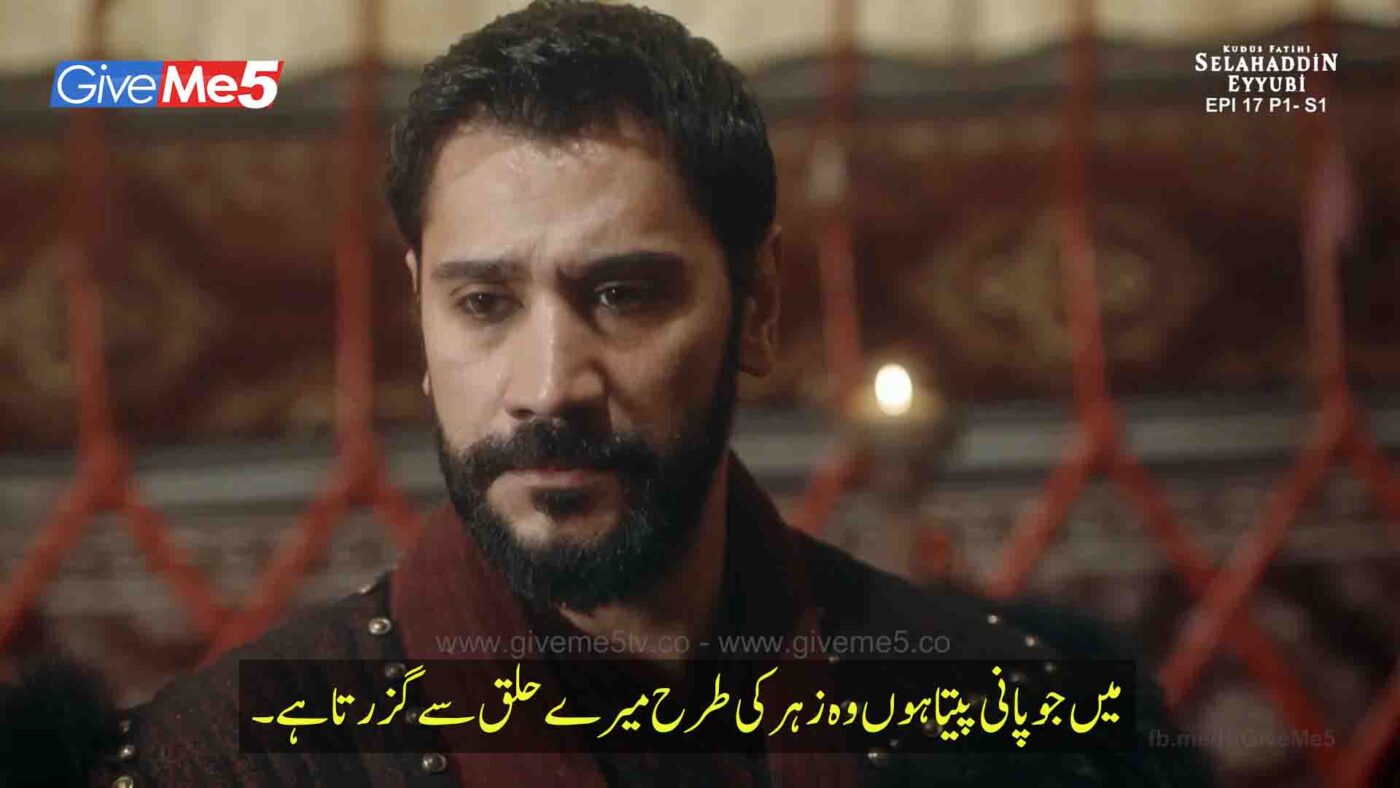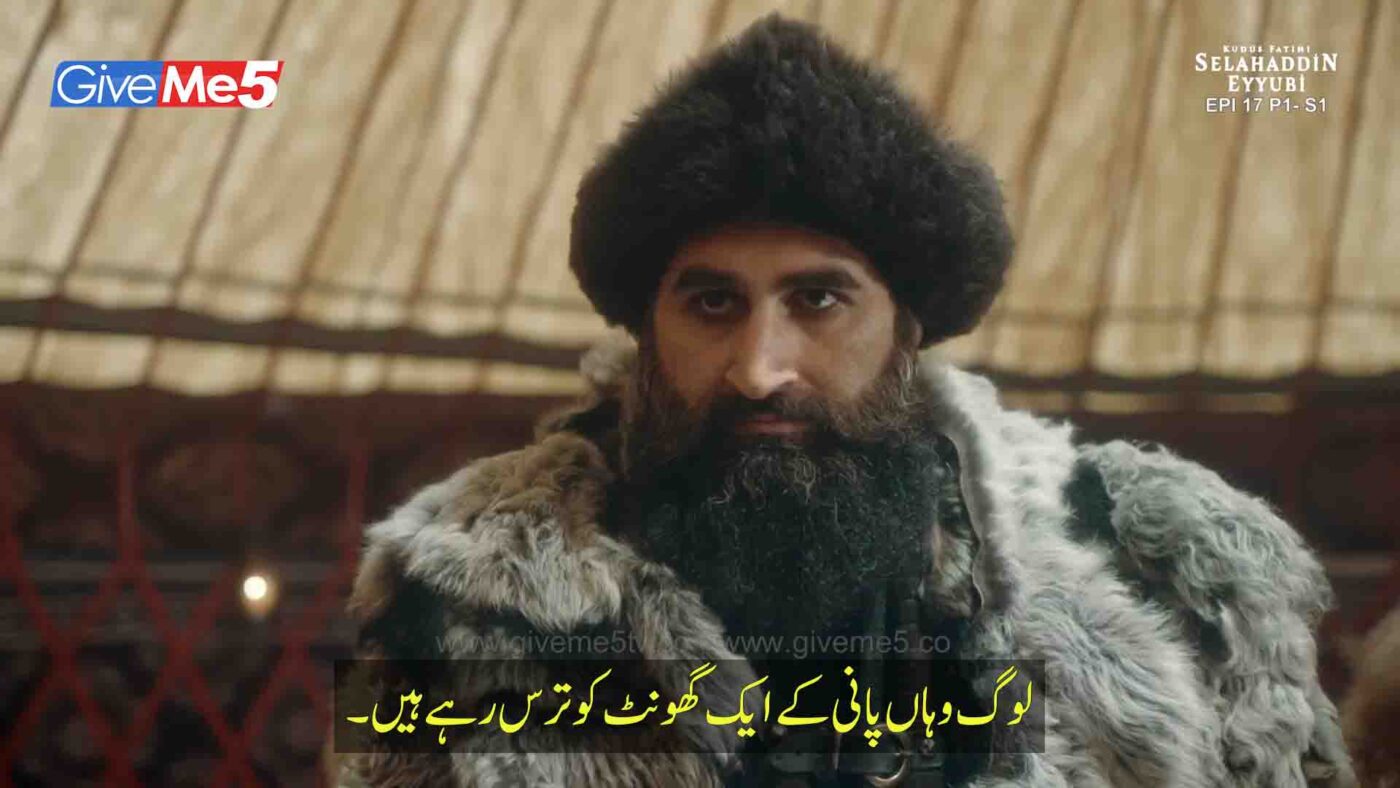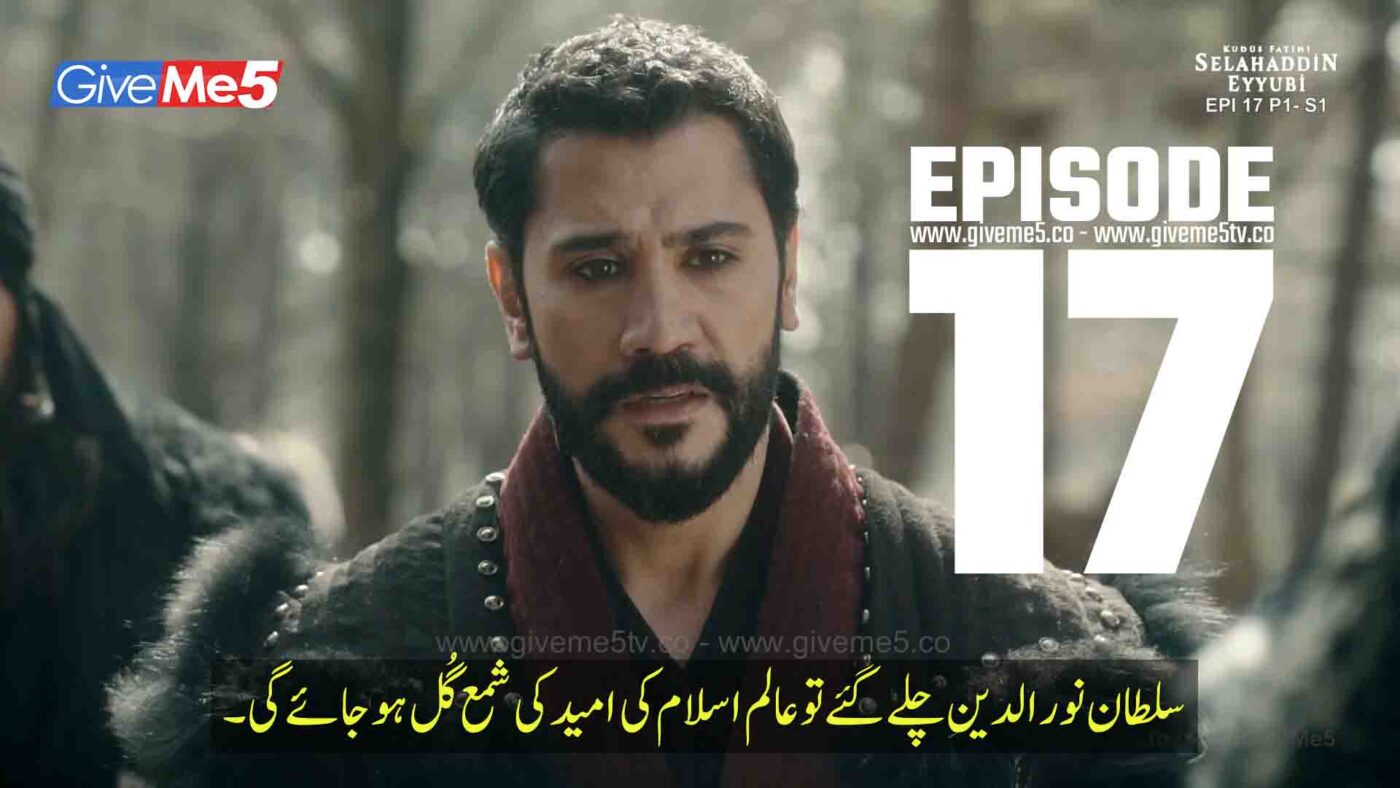This is Episode No 17 of Kudüs Fatihi Selahaddin Eyyubi with Urdu Subtitles by GiveMe5.
The legacies of Selahaddin Eyubi and Noor ud Zengi continue to reverberate throughout the Middle East and beyond, shaping the cultural, political, and religious landscape of the region to this day. Both leaders are celebrated as champions of Islamic unity and resistance against foreign invaders, their names synonymous with valor, honor, and piety.
Saladin’s conquest of Jerusalem and his chivalrous conduct towards his Christian adversaries have earned him admiration and respect in both the East and the West. His commitment to Jihad and the defense of Islamic lands against Crusader aggression solidified his place in history as one of the greatest Muslim leaders of all time.

Similarly, Noor ud Zengi’s efforts to repel the Crusaders and unite the Muslim factions under his banner laid the foundation for the subsequent successes of leaders like Saladin. His capture of Edessa and his unwavering commitment to Jihad inspired generations of Muslims to continue the struggle against foreign invaders.
The stories of Selahaddin Eyubi, Noor ud Zengi, and their rivals offer a fascinating glimpse into the complexities of power and politics in the medieval Middle East. Their lives were defined by conquests, alliances, and rivalries, as they sought to defend the Muslim world against the existential threat posed by the Crusades.

Despite the challenges they faced from within and without, both leaders left an indelible mark on the history of the region, their legacies enduring as symbols of resilience, courage, and unity in the face of adversity. As the Middle East continues to grapple with modern-day challenges, the stories of Saladin, Noor ud Zengi, and their rivals serve as a reminder of the enduring spirit of the Islamic world.
In the annals of Middle Eastern history, two figures stand out for their remarkable impact on the region: Selahaddin Eyubi, known as Saladin, and Noor ud Zengi. Both emerged as prominent leaders during the Crusades, fiercely defending Islamic territories against foreign invaders while navigating complex alliances and rivalries within the Muslim world.

Saladin, born in Tikrit, Iraq, in 1137, rose to prominence as a Kurdish Muslim military leader under the Fatimid caliphate. His crowning achievement came in 1187 when he recaptured Jerusalem from the Crusaders after the decisive Battle of Hattin. Saladin’s conquest of Jerusalem not only dealt a severe blow to the Crusader states but also earned him a reputation as a chivalrous and magnanimous ruler. Throughout his reign, Saladin sought to unite the Muslim world under his banner, extending his influence across Egypt, Syria, and Mesopotamia through military campaigns and diplomatic maneuvers.
Noor ud Zengi, on the other hand, hailed from Damascus and belonged to the Zengid dynasty. Born in 1118, he succeeded his father as the ruler of Aleppo and Mosul, becoming a staunch defender of Islamic lands against Crusader aggression. Noor ud Zengi’s capture of Edessa in 1144 marked a significant victory against the Crusaders, inspiring Muslims across the region to rally behind him. Like Saladin, he sought to unite the Muslim factions under his leadership, launching military campaigns to repel the Crusaders and fortify the borders of the Islamic world.
Despite their shared goal of defending Islamic territories, Saladin and Noor ud Zengi were not immune to the rivalries and power struggles that characterized the medieval Middle East. Saladin, in particular, faced challenges from rival Kurdish dynasties, including the Ayyubids, as he sought to establish himself as an independent ruler. Noor ud Zengi also grappled with opposition from other Muslim factions, such as the Seljuk Turks and the Abbasid caliphate, as he endeavored to unite the Muslim world under his banner.

The legacies of Saladin and Noor ud Zengi continue to reverberate throughout the Middle East and beyond. Saladin’s conquest of Jerusalem and his magnanimous treatment of his Christian adversaries have earned him admiration and respect across cultural and religious divides. Similarly, Noor ud Zengi’s unwavering commitment to Jihad and his victories against the Crusaders have inspired generations of Muslims to continue the struggle against foreign invaders.

